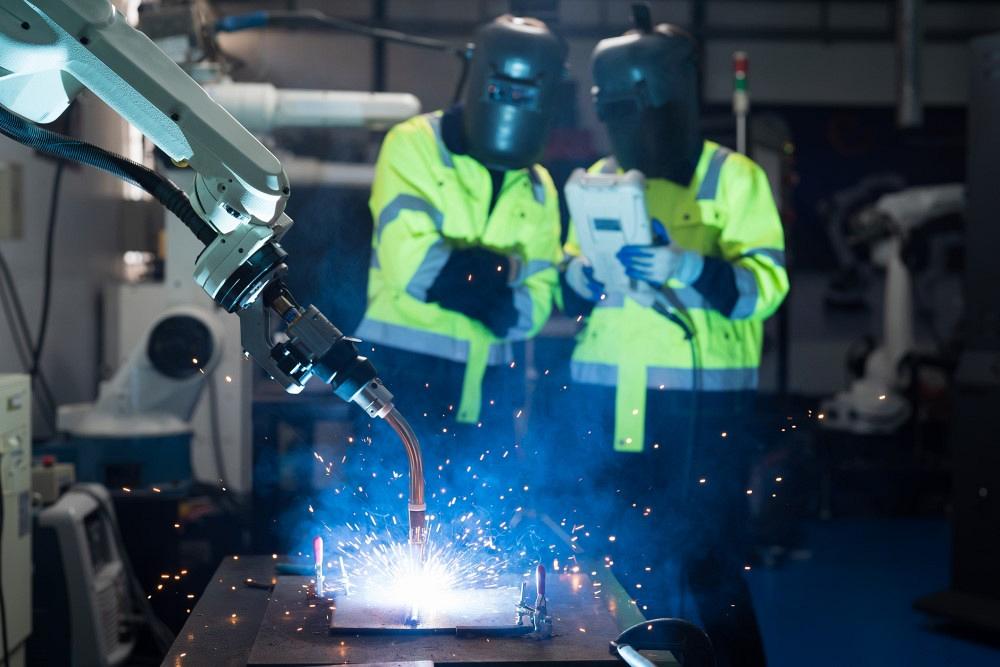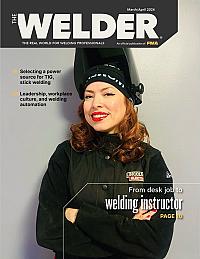Program Coordinator/Welding Instructor
- FMA
- The Fabricator
- FABTECH
- Canadian Metalworking
Categories
- Additive Manufacturing
- Aluminum Welding
- Arc Welding
- Assembly and Joining
- Automation and Robotics
- Bending and Forming
- Consumables
- Cutting and Weld Prep
- Electric Vehicles
- En Español
- Finishing
- Hydroforming
- Laser Cutting
- Laser Welding
- Machining
- Manufacturing Software
- Materials Handling
- Metals/Materials
- Oxyfuel Cutting
- Plasma Cutting
- Power Tools
- Punching and Other Holemaking
- Roll Forming
- Safety
- Sawing
- Shearing
- Shop Management
- Testing and Measuring
- Tube and Pipe Fabrication
- Tube and Pipe Production
- Waterjet Cutting
Industry Directory
Webcasts
Podcasts
FAB 40
Advertise
Subscribe
Account Login
Search
The Last Pass: Make lifelong learning part of a welding career
- By Greg Siepert
- UPDATED October 10, 2023
- October 10, 2023
It almost sounds cliché when you hear someone say, "Never stop learning." But it was among the three best pieces of advice I received early in my career.
As a reminder, those three gems were:
- Find the professional organization associated with your career field, join it, get involved, and read any magazines or journals it publishes.
- Actively build your network.
- Never stop learning in life (this includes finding and maintaining a hobby to keep your curiosity alive).
As I dive deeper into this, I completely understand that while we learn things as we progress forward, it is about genuinely digging in and learning for fulfillment and purpose. Some would say that we build toward a rewarding and meaningful life through continuous learning.
Lifelong learning can take many forms. Unfortunately, we often align learning with formalized education, resulting in rolled eyes and sighs because the last thing we want to do is to go back to school. Ultimately, we should avoid this type of thinking and instead embrace growth that occurs through exploring our curiosities and interests. Typically, this is where we encounter that fork in the road as we decide to learn for career advancement or personal gain.
Some of the best lifelong learners with a vast amount of knowledge to share have gained that knowledge through the hobbies in their lives. These hobbies stretched their minds, grew their curiosities, helped them apply their trade, and gave them additional skills to offer.
Exploring new hobbies may help you to find new talents and expose you to new perspectives. Most importantly, this growth mindset may spill over into your career field. Learning or advancing a hobby could give you a chance to mentor someone, expand your role in the community, reveal a possible career change or new professional organization, and provide you the ability to grow your personal and professional network.
When it comes to career advancement, there are a tremendous number of opportunities for welders. One opportunity that comes to mind is the Certified Welding Inspector (CWI) certification through the American Welding Society. The CWI credential is an excellent goal with built-in requirements for professional development and continued learning.
One thing I often recommend before making a big investment in the CWI process is perhaps taking a material-specific course related to the work you are doing, an NDT course, or leadership courses through a local economic development entity, where you build your network and knowledge at the same time. Through this process, you begin learning as you build the knowledge base for the tests or leadership roles you may encounter after attaining the credential.
You also should evaluate your career goals. Are you doing this for the short-term or long-term benefit? Are you pursuing this because it was recommended by an employer, a mentor, or because a simple Google search sparked your interest?
When I received these three pieces of advice, it took some time for me to realize how they interacted with each other. While I’ve numbered the three, please know I do not believe that they have a hierarchy of importance. These three pieces of advice have played a critical role in helping me get to where I am in my personal life and career.
If you have time and want to share more on this advice or anything else, email me your questions, comments, and ideas at thelastpass.thewelder@gmail.com.
subscribe now
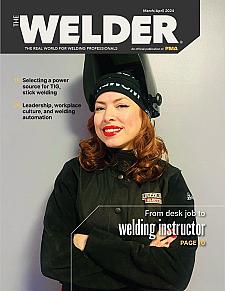
The Welder, formerly known as Practical Welding Today, is a showcase of the real people who make the products we use and work with every day. This magazine has served the welding community in North America well for more than 20 years.
start your free subscriptionAbout the Author

Greg Siepert
Hutchinson Community College
1300 N Plum
Hutchinson, KS 67501
About the Publication
- Stay connected from anywhere

Easily access valuable industry resources now with full access to the digital edition of The Fabricator.

Easily access valuable industry resources now with full access to the digital edition of The Welder.

Easily access valuable industry resources now with full access to the digital edition of The Tube and Pipe Journal.
- Podcasting
- Podcast:
- The Fabricator Podcast
- Published:
- 04/16/2024
- Running Time:
- 63:29
In this episode of The Fabricator Podcast, Caleb Chamberlain, co-founder and CEO of OSH Cut, discusses his company’s...
- Trending Articles
Sheffield Forgemasters makes global leap in welding technology
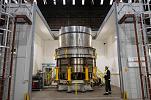
ESAB unveils Texas facility renovation

Engine-driven welding machines include integrated air compressors

How welders can stay safe during grinding
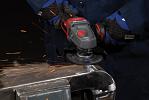
The impact of sine and square waves in aluminum AC welding, Part I
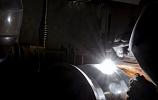
- Industry Events
16th Annual Safety Conference
- April 30 - May 1, 2024
- Elgin,
Pipe and Tube Conference
- May 21 - 22, 2024
- Omaha, NE
World-Class Roll Forming Workshop
- June 5 - 6, 2024
- Louisville, KY
Advanced Laser Application Workshop
- June 25 - 27, 2024
- Novi, MI
























